In the heart of Melton, Cadet Gi, proud Koorie and Bungala person is making significant strides at the Hope Street First Response Youth Service. Gi has found a meaningful placement while completing his Bachelor of Social Work (honours), working within the community, specifically engaging with First Nations youth.
The journey to the Warumilang Program cadetship has been challenging and rewarding, underscoring the importance of cultural safety and community support in social work.
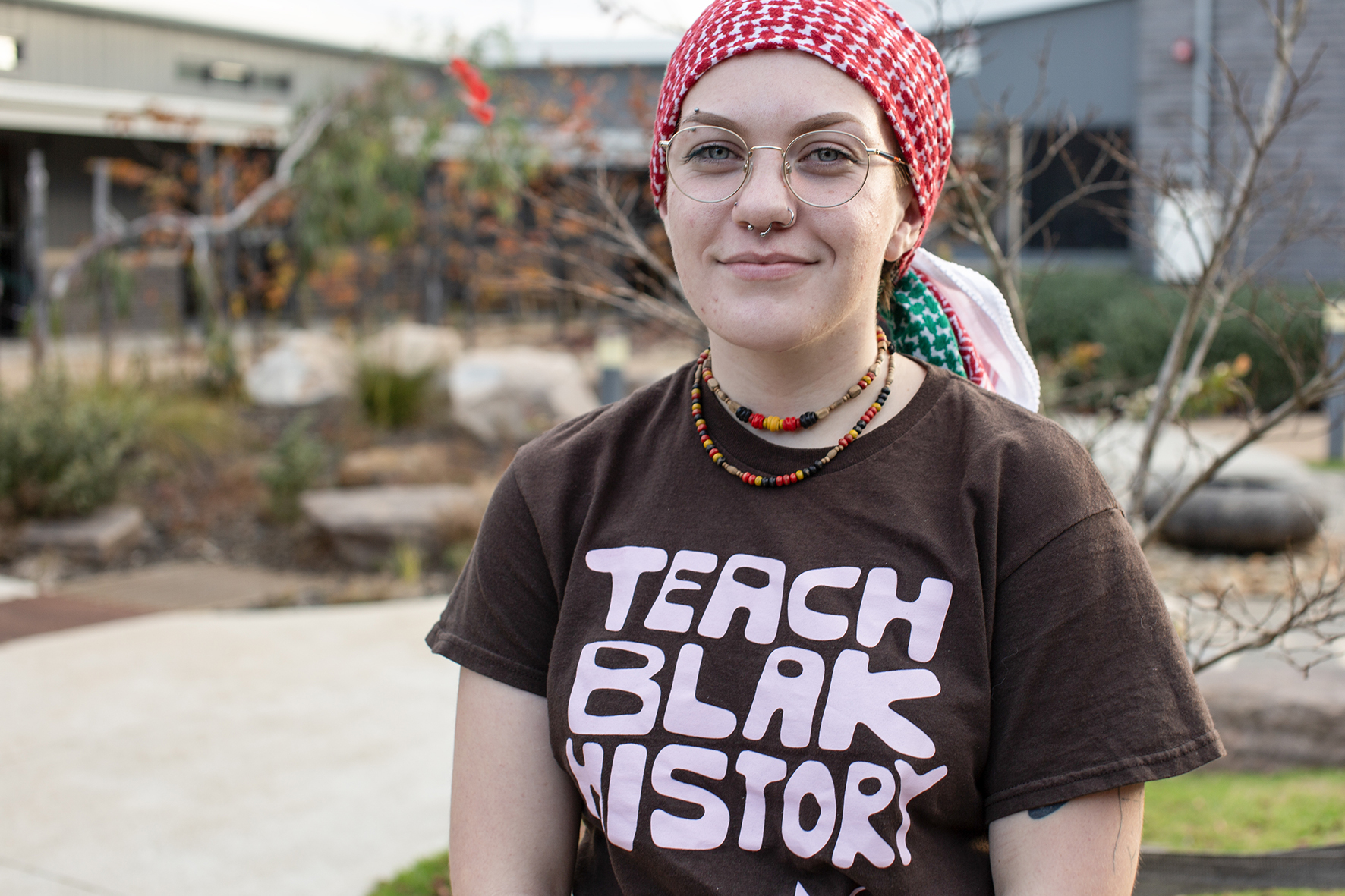
Gi’s quest for a culturally safe placement led them to seek alternatives to his initial options.
I needed to complete a placement and I didn’t really like my placement options – I didn’t think they were very culturally safe.
Gi’s determination to work within his community was clear:
I really wanted to do my placement working in community with Mob.
The cadetship opportunity through (AFL SportsReady and offered by Hope Street) was recommended to them when Hope Street connected with RMIT University. It includes financial support—an essential factor given the demanding nature of social work placements.
The financial support while completing a cadetship was something that stood out to me. Because by completing my placement I would be doing unpaid work and for social work, it is over 1000 hours which is the equivalent of over six months full-time work.
Getting paid during my placement/cadetship is beneficial for me.
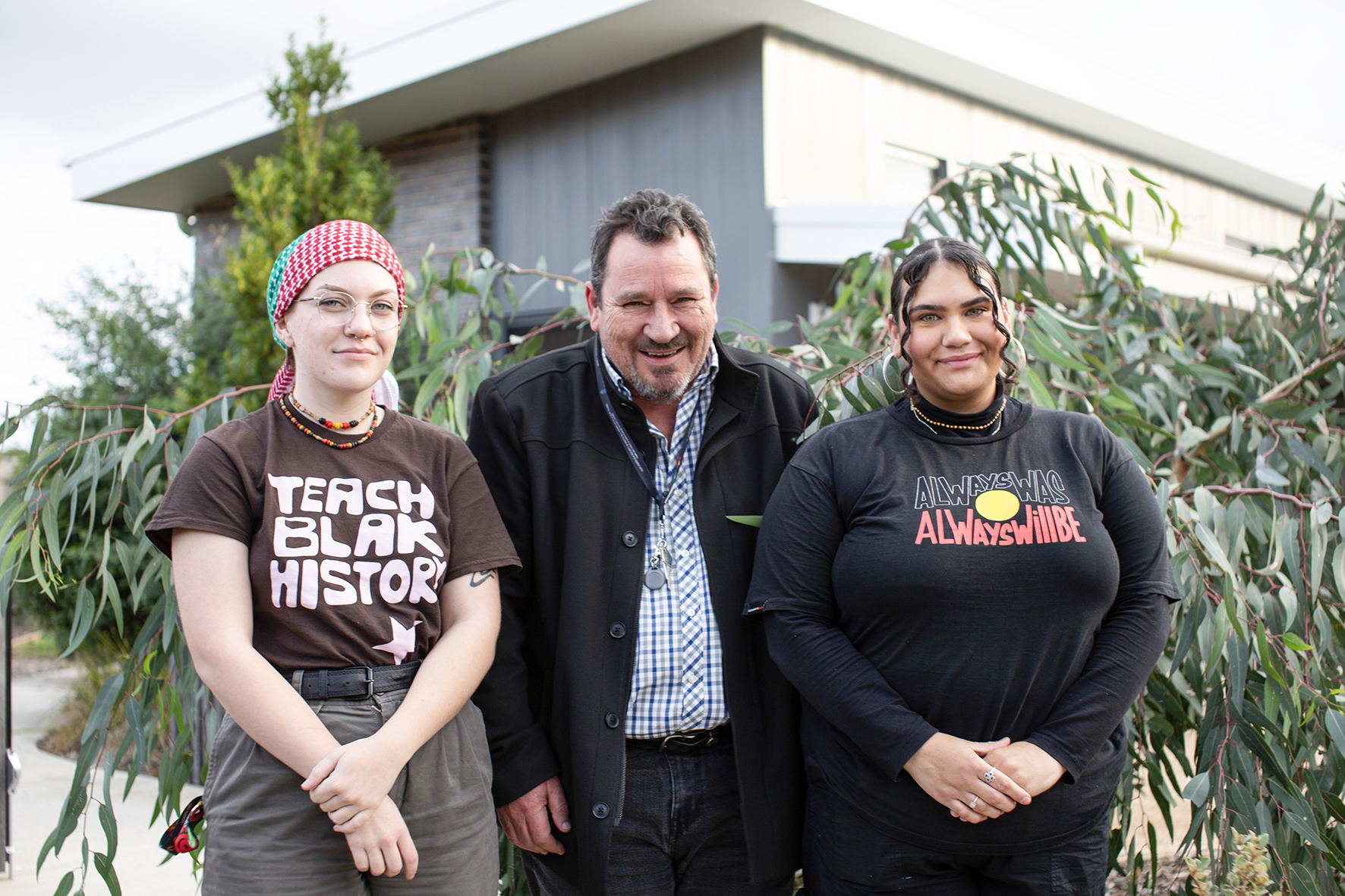
Gi’s experience at Hope Street has been overwhelmingly positive. They have praised the supportive environment fostered by the team, especially highlighting colleagues Gary and Jordy.
The staff here are so supportive. It is definitely one of the best workplace cultures I have experienced.
I think that I was embraced by the team instantly and have had the opportunity to learn a lot about the sector from a practitioner point of view.
With over a decade of personal experience as a service user in the homelessness sector. Gi brings a unique perspective to the role.
It has been interesting learning about the other side of it – which has been really beneficial for me.
This hands-on experience is invaluable in helping them understand the complexities and challenges of the sector. Particularly from a practitioner’s viewpoint.
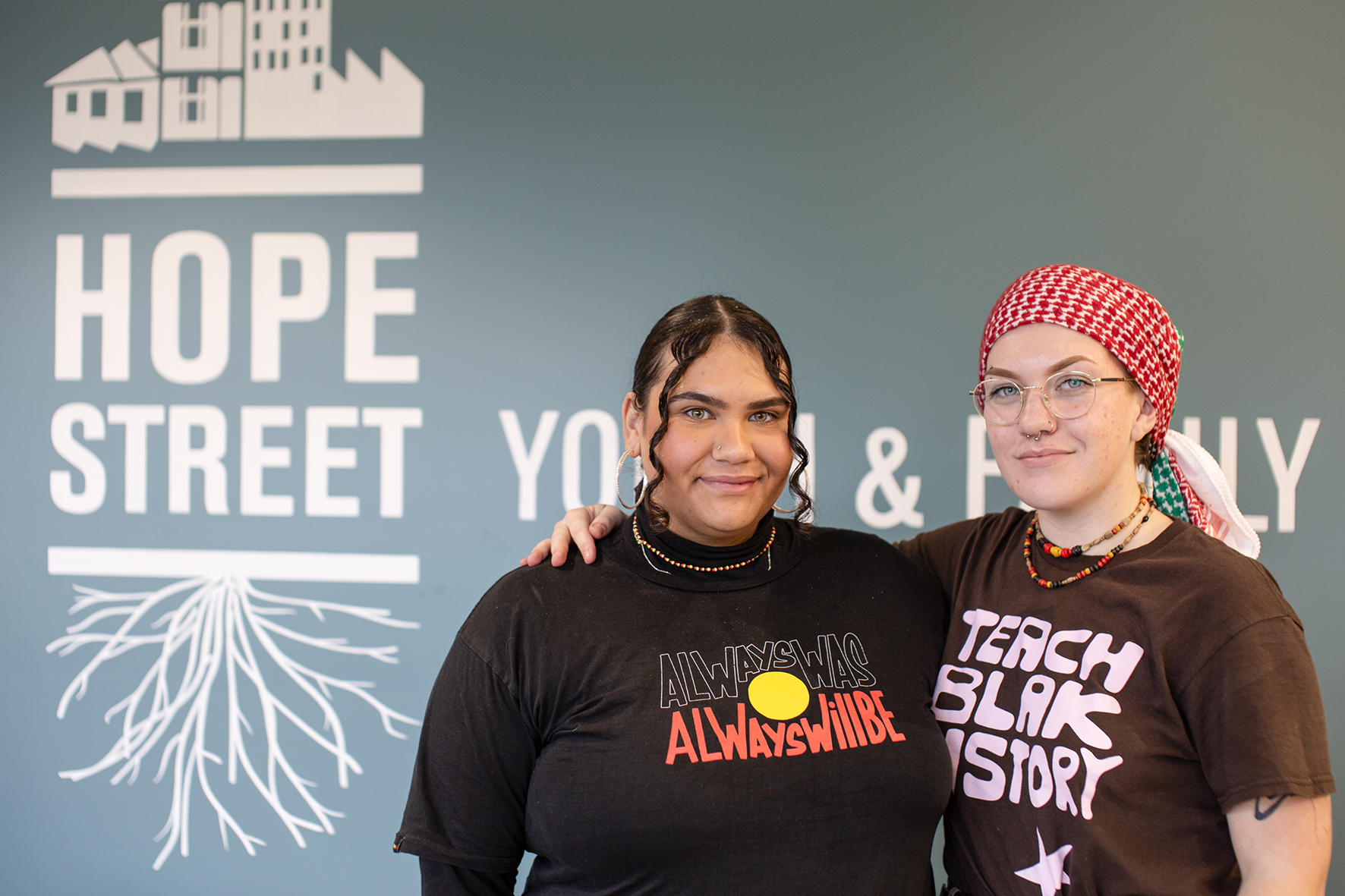 [Gi with fellow Cadet Ruby]
[Gi with fellow Cadet Ruby]
Gi is passionate about providing one-on-one support and being directly involved in helping people. They have thrived in this aspect of the cadetship, noting the importance of having practitioners with lived experiences.
I feel like it is really helpful having a young person as part of staff who has that lived experience when trying to relate to the young people that come through Hope Street’s programs.
Especially young First Nations people, the last thing you want to do is open up your life to some stranger who doesn’t get it – just to be re-traumatised.
However, the role comes with its challenges. The transient nature of the service users.
Often service users only stay for around six weeks. This can make it difficult to build lasting relationships.
The most challenging part of my cadetship has been that due to the service model you can start the work and before you know it the work you started is over.
Additionally, the reality of young people choosing to self-exit can be tough. You can be working with them, and then when you show up the next week, they are no longer there.
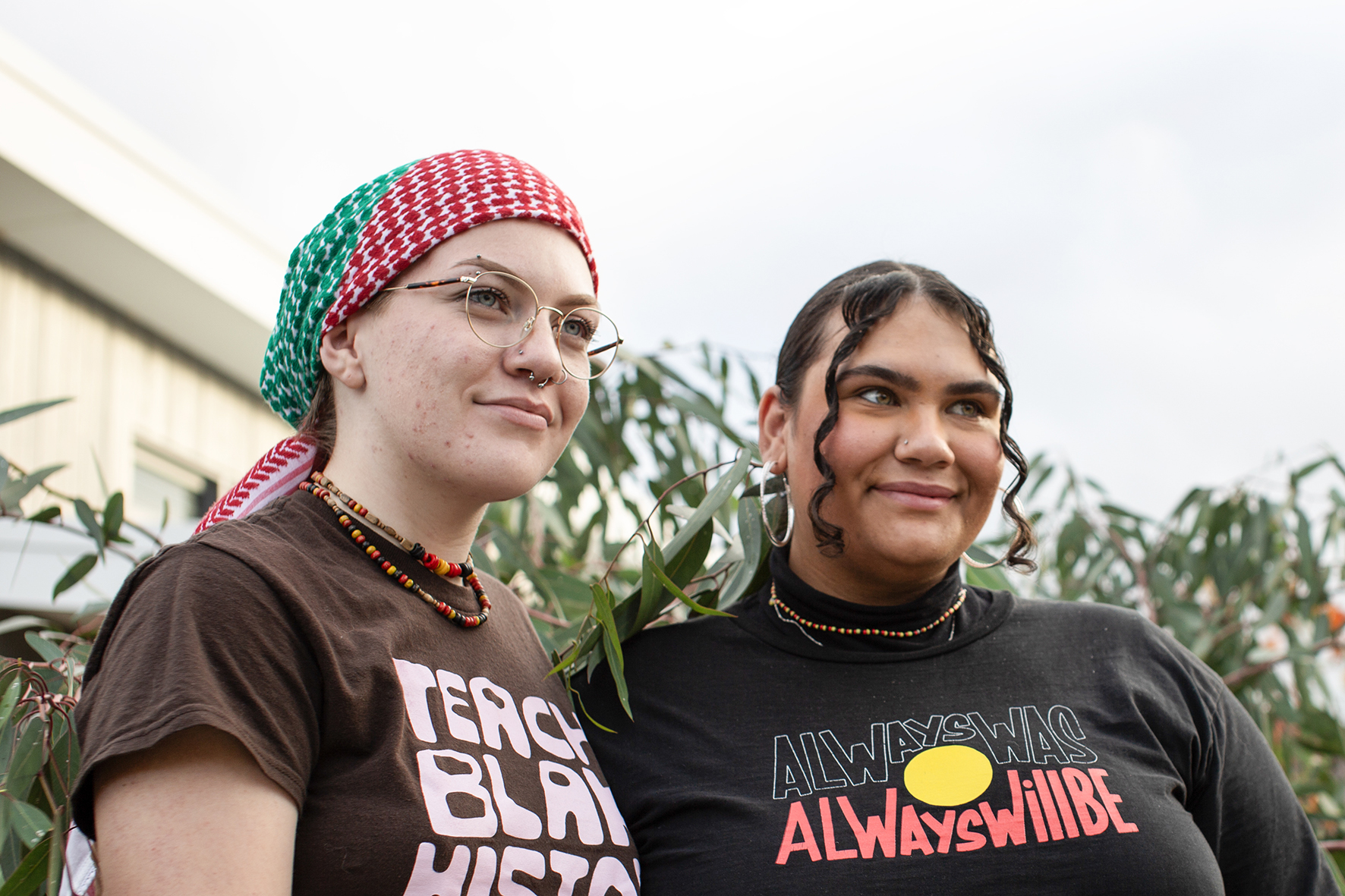
Despite these challenges, Gi remains steadfast in their commitment to community. They emphasise the need for a focus on First Nations service users, who constitute a significant portion of the homeless population.
It is one thing to access the services, but the knowledge about what services are available in First Nations communities is so limited.
Driven by personal and generational experiences of trauma and oppression. Gi is dedicated to making a positive impact through social work.
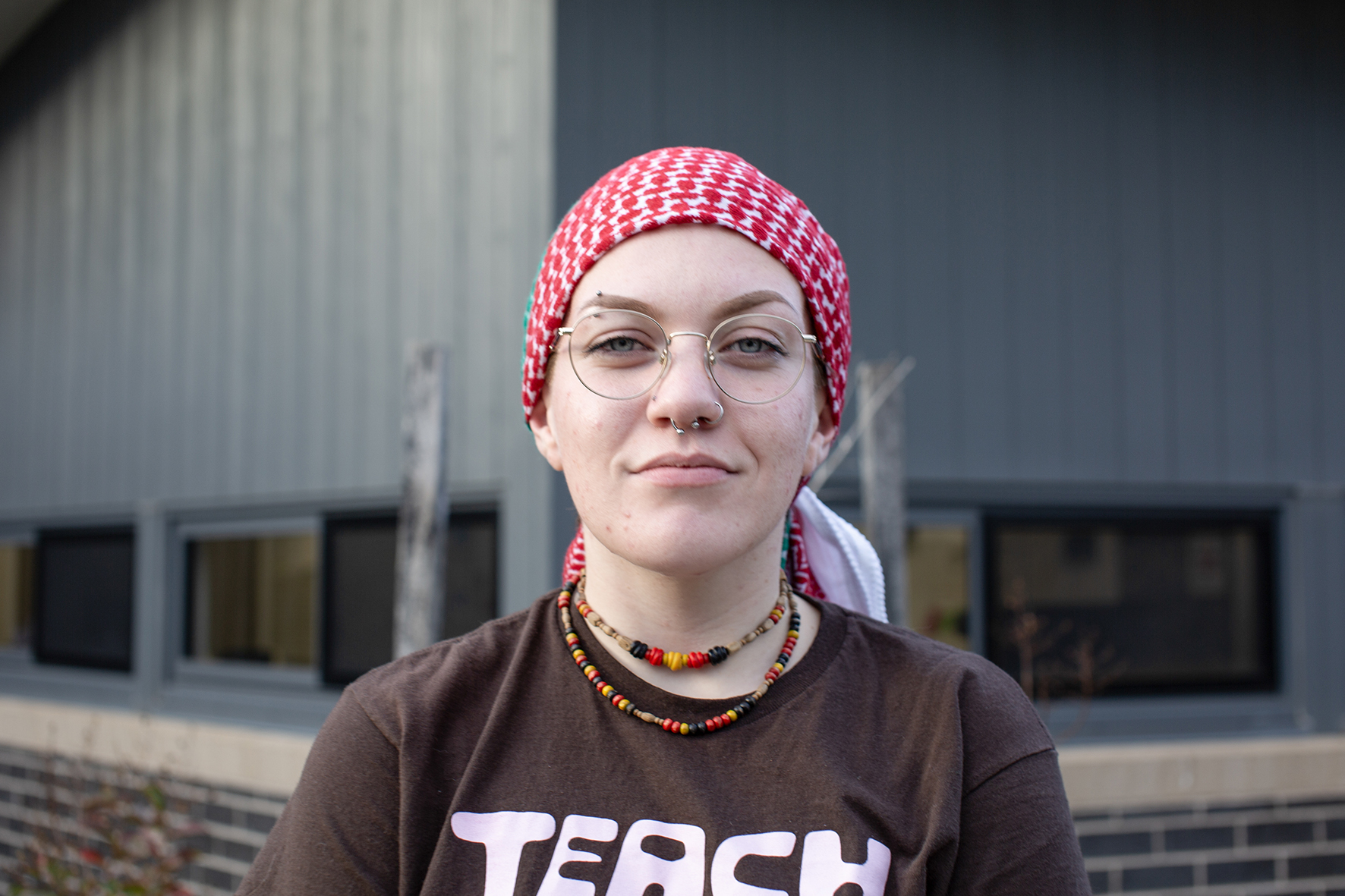
Having a lot of life experiences and generational trauma/oppression that has been experienced by my family has set me on this social work path.
If I can help even one young Black kid avoid what I went through, then I have done something beneficial.
Community is who we are as First Nations people.
Gi’s journey at Hope Street is a testament to the power of lived experience, cultural safety and community support in social work. His dedication and passion in paving the way for more inclusive and effective support systems for First Nations youth in the homelessness sector.
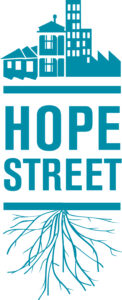 Hope Street Youth and Family Services is a leading specialist in youth homelessness in Victoria, extending its reach from Melbourne’s Northern and Western regions to non-metropolitan areas lacking dedicated services.
Hope Street Youth and Family Services is a leading specialist in youth homelessness in Victoria, extending its reach from Melbourne’s Northern and Western regions to non-metropolitan areas lacking dedicated services.
With over 40 years of experience, Hope Street offers targeted and holistic programs for young people, including young families. These include:
– Outreach support to assist those at risk of homelessness in meeting immediate needs and connecting with services
– 24/7 crisis accommodation with specialist support
– Supported transitional accommodation focusing on skill development, education, training and employment
– The Hope to Home program, aids young people and families in securing private rentals
Hope Street also advocates for systemic improvements and contributes to research addressing the structural causes of youth homelessness.
